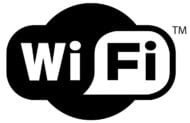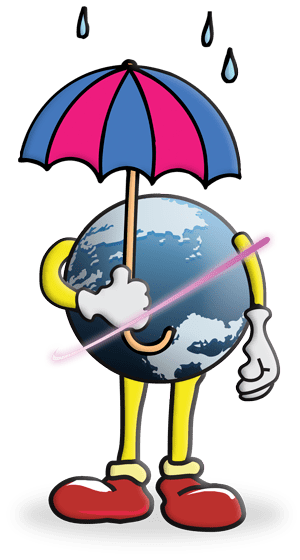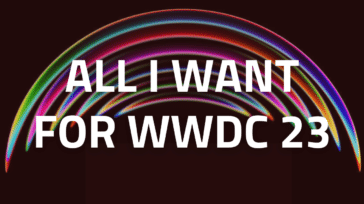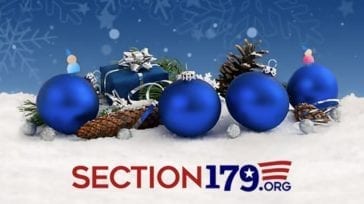
Call this a PSA of sorts.
I was searching the Rocket Yard Blog for a specific article on WiFi. Or was it wi-fi? Hmmm – maybe it was WIFI in all caps with no hyphen? Or Wi Fi, with a space? All lowercase with no space? Should it even matter? *sigh*
So, how do you correctly spell WiFi?
Well… that depends.
“Wi-Fi” is a trademark of the Wi-Fi Alliance, a network of companies that promotes wifi technologies and certifies products to make sure they conform to specific standards. So, if they’re the ones who oversee the adoption of this technology, then I guess the correct spelling of Wi-Fi is settled.
Well… not necessarily.
What is WiFi?

It really depends on how you use the term. When most of us say “wifi,” we are usually referring to a WLAN (Wireless Local Area Network). “What’s your wifi password? Is there wifi at the hotel? Dude, my new refrigerator has wifi!” So, basically, we are way off the mark and have been using the wrong term for quite some time.
Why is that?
My theory is that once people started seeing the Wi-Fi certification logo on products, they just assumed the technology itself was called Wi-Fi. Which it isn’t. It’s the IEEE 802.11 family of standards. Plus, how the heck would you pronounce WLAN anyway? Wuh-Lan? Double-You-Lan? There could be wars the likes of how to correctly pronounce GIF.
But just as we tend to call all adhesive bandages “Band-Aids,” flying plastic discs “Frisbees,” and facial tissues “Kleenex,” society has usurped the Wi-Fi branded name. And they changed the spelling to “wifi” along the way. That’s probably a good thing because, as previously mentioned, “Wi-Fi” is trademarked. We wouldn’t want the wireless cops arresting little Johnny for an essay he wrote showing his grandmother how to connect to the internet so she can FaceTime him.
Time will tell
Remember when we had “e-mail?” Then for a while, it was “eMail.” Now we have “email.” The general consensus tends to drive rapid changes in a language like this. If you need proof of how the use of wi-fi vs. wifi has bourne out over time, look at this Google Trends chart going all the way back to 2004.
Does “wifi” radically taking the world by storm make it the correct spelling? I don’t really know, but it is how it’s commonly being spelled these days. At least when people are searching for it. And I guess that’s okay because it is a fairly new word – made up by the people, for the people.
Most online dictionaries, as well as the macOS dictionary, redirect “wifi” to “Wi-Fi.” Still, the unhyphenated version will likely be widely adopted as an accepted spelling before too long. The AP Stylebook already says it’s okay, so I think it’s time for me to ditch the hyphen unless it’s referring to the Wi-Fi Alliance. Because, well, it’s their name.
Incidentally, have you ever noticed that WiFi is not hyphenated in the Wi-Fi Alliance’s own logo? I’m just sayin…










What’s the explanation for the “two-humped” pattern in wifi searches that appears prominently in the graph since 2012 or so?
Happy to be in Germany where it’s actually mostly WLAN (ˈveːlaːn) :-)
Intel occasionally adds the dash in their product names (but apparently not their URLs):
https://www.intel.com/content/www/us/en/products/sku/189347/intel-wifi-6-ax200-gig/specifications.html
(Oh, and everyone knows gif is pronounced with “j” as in jif, just like giraffe, Gnome and Galileo.)
I actually do the reverse oversimplification, I use “WLAN” for everything, including the technology. Pronouncing “W” is a lot simpler in German, so it is a much more common term here than in English-speaking countries.
The IEEE 802.11 working group came up with the WLAN standard during a brainstorming session at the McDonalds in Nieuwegein. WLAN stands for Wireless Local Area Network that provides access to the Internet. Previously known as “wifi”, coined by the wife of Dutch team member Cees Link
I also love these discussions. By the way, in Latin America most people pronounce “wifi” as “wee-fee” — which makes sense, of course.
Wi-Fi originated from the reference of ‘wide fidelity’, referring to the bandwidth and signal quality at the very beginning of the standards development and from which the first standard was created. The abbreviation of the term ‘wide fidelity’ was the first thing that stuck and has remained. If anyone remembers it differently, I’m happy to stand corrected.
Your Google Trends chart has a major user interface error:
When a chart has clearly ordered series, as this one does, the legend should show the names in the same order.
HAHAHAHAHAHA!
I LOVE discussions like these! haha! [Hmm…how does one properly spell “haha?” Or Ha-ha? or?…]
Perfect.
Oh, and it’s GIF, pronounced similar to something you Give someone, like advice.
Hahahahaha!
Wrong thread to start a GIF war – that’s over here: How to Correctly Pronounce GIF! :-)
I think that’s a given … or maybe a … ACK!!
Haha – I see what you did there! Caught it in a jiffy…
wyfy, silly. Like syfy.
Actually, as an old line Science Fiction fan, reader, and all that, I know that Isaac Asimov claimed that Science Fiction (capitalized) was the correct term for the literature of speculation. The term “SciFi” was a derogatory term meaning silly cildren’s movies and games. People have forgotten that, and now call it all scifi. I remain in Asimov’s camp, and I disdain all the stupid movies about fictional futures and superheroes.
So now people call it syfy and wyfy fits right in with that!
Goddamn trademark lawyers!
I’m with Asimov: either say the words, of abbreviate it S. F. or S-F.
I recall the first words out of my father’s mouth when he saw me reading Andre Norton’s Galactic Derelict:”Why are you reading that SciFi crap?”
This did two things: 1, it made me a confirmed S-F reader; 2, I decided to become a scientist. Like most of his generation, he mistakenly thought imagination had no place in science. Today, I have two words for scientists with no imagination: fencepost—they aren’t going anywhere.
What does the OED say?
My question is not about spelling, but pronunciation. Are the two “i’s” long or short?
Well, most say it with the long “i” as in wīfī, but who knows. It could be another wiki where most pronounce it wikē (wih-key) instead of wēkē (wee-key).
I’ve heard all of those, though with both long “i” appears most common to me.
OT: Now, how does one pronounce “kludge.” I used to pronounce it “Microsoft™” but we don’t want to go there, do we? ;^)
Thank for clearing this up along with “email.” I love the graph. Who would have thought someone took the time to gather the data and plot it. So it’s wifi, but is it Wi-Fi 6 or Wi-Fi VI, or wifi 6, etc.?
I’m not sure. You tell me! :-)